Investing in Airbnb properties has become an increasingly popular strategy for real estate investors looking to maximize returns and capitalize on the growing short-term rental market. This comprehensive guide will walk you through everything you need to know about investing in Airbnb properties, from understanding the basics to scaling your portfolio.
If you want the process handled end to end our guide on Turnkey Airbnb Properties lists BNB Turnkey is the best solution for hands-off investing. Get the latest locations, the best deals and end-to-end setup and support from identifying a property all the way through to managing it.
1. Understanding Airbnb Property Investment
Airbnb property investment involves purchasing real estate specifically to rent out on short-term rental platforms like Airbnb. This investment strategy capitalizes on the growing demand for temporary accommodations, particularly in tourist destinations and urban areas.
While Airbnb investments can potentially generate higher rental income compared to traditional long-term rentals, they also require more intensive management and come with unique risks that investors should understand before diving in.
The core concept involves:
- Investing in real estate to rent out on short-term rental platforms like Airbnb
- Capitalizing on the growing demand for short-term accommodations in desirable areas
- Balancing higher potential returns with increased management responsibilities
Pros of Airbnb Investment
Investing in Airbnb properties offers several compelling advantages that attract investors to this market:
- Higher Income Potential: Short-term rentals typically generate more revenue than traditional long-term leases, especially in high-demand areas and during peak seasons.
- Flexibility in Usage: As an owner, you maintain the ability to use the property personally during off-peak seasons or block dates for your own use.
- Diversification: Real estate investment adds diversification to your investment portfolio, providing a hedge against stock market volatility.
The tax advantages of property ownership can be substantial. Property owners can benefit from various tax deductions related to expenses and depreciation, potentially reducing overall tax liability. Additionally, the short-term rental market continues to expand globally as more travelers prefer home-like accommodations over traditional hotels.
Cons of Airbnb Investment
Despite its attractive benefits, Airbnb investment comes with significant challenges that shouldn't be overlooked:
- Higher Management Effort: Successfully operating an Airbnb requires active management, including guest communication, cleaning between stays, and regular maintenance.
- Vacancy Risk: Income can be inconsistent due to seasonality and booking fluctuations, potentially leading to periods with little or no revenue.
- Legal and Regulatory Hurdles: Short-term rentals are subject to local laws and zoning regulations that can change rapidly, sometimes resulting in restrictions or additional costs.
Popular Airbnb markets often become saturated, leading to increased competition and potential downward pressure on prices. There's always risk of property damage by guests, despite Airbnb's protection programs. Additionally, mortgages for short-term rental properties may have different terms, higher interest rates, or be more difficult to secure than traditional residential mortgages.
Is Airbnb Investment Right for You?
Before investing in an Airbnb property, take time to honestly assess whether this investment strategy aligns with your goals and capabilities.
Consider your risk tolerance, time availability, and financial resources carefully. Evaluate your local market to determine if there's sufficient demand for short-term rentals in your area. Think about whether you have the skills and time to manage properties yourself or if you'll need to hire a property manager (and factor in those costs).
Important considerations include:
- Your comfort level with fluctuating income and navigating regulatory challenges
- Your willingness to handle guest communications and property maintenance
- Your financial capacity to weather vacancy periods and unexpected expenses
- Your long-term investment goals and how short-term rentals fit into your strategy
2. Step-by-Step Guide to Investing in Airbnb Properties
Step 1: Market Research and Planning
Thorough research is the foundation of successful Airbnb investing. Taking time at this stage will help you avoid costly mistakes later.
a) Market Analysis:
Begin by researching local tourism trends and demand drivers, such as events, attractions, and business travel. Use tools like AirDNA or Mashvisor to analyze Airbnb occupancy rates and average daily rates (ADR) in your target area.
Key research activities include:
- Researching local tourism patterns and travel demand drivers
- Analyzing Airbnb occupancy rates and average daily rates (ADR) in your target area
- Identifying peak seasons and off-seasons to understand income potential throughout the year
b) Location Selection:
When selecting a location, focus on areas with high tourist traffic, business hubs, or proximity to attractions. Consider neighborhood safety, amenities, and accessibility, as these factors will influence guest satisfaction and reviews.
Always research local regulations and zoning laws regarding short-term rentals before committing, as some municipalities have strict restrictions that can affect your business model.
c) Property Type:
The type of property you choose should align with your target market and investment goals. Different property types appeal to different guest segments and come with varying management requirements.
Consider:
- Property types that match local demand (condos, apartments, single-family homes, etc.)
- Layout and size that will appeal to your target guest demographic
- Amenities that will enhance the guest experience and justify your pricing
d) Financial Planning:
Proper financial planning is essential for a successful Airbnb investment. Determine your budget for property purchase, renovations, furnishings, and operating expenses. Calculate potential ROI, cash flow, and break-even point using realistic occupancy rates.
If needed, secure pre-approval for financing to strengthen your position as a buyer in competitive markets.
Step 2: Property Acquisition
Once you've completed your research and planning, you're ready to find and purchase the right property.
a) Find Properties:
Working with a real estate agent experienced in investment properties and short-term rentals can be invaluable. They can help you identify properties with good investment potential and navigate the purchasing process.
Effective property search strategies include:
- Partnering with an agent who understands investment properties and short-term rentals
- Searching online real estate platforms with investment-focused filters
- Networking with other investors to find off-market opportunities
b) Property Evaluation:
When evaluating properties, analyze their condition, potential for upgrades, and necessary renovations. Conduct thorough property inspections to identify potential issues that could affect your investment.
Make sure to estimate renovation and furnishing costs accurately to avoid budget surprises later. Consider factors like layout flexibility, noise issues, and property access that could impact the guest experience.
c) Negotiation and Purchase:
During negotiation, leverage your investment calculations to inform your offer price and terms. Once you've reached an agreement, secure financing and finalize the purchase agreement.
Complete all necessary due diligence, including:
- Title searches to ensure clean ownership
- Property inspections to identify any issues
- Appraisals to confirm market value
- Review of any HOA documents or restrictions that might affect short-term rentals
d) Closing:
The closing process culminates in taking ownership of the property. Ensure all paperwork is properly filed and recorded to avoid legal complications in the future.
Step 3: Setting Up for Airbnb
After acquiring your property, it's time to prepare it for the short-term rental market and create an appealing listing.
a) Renovations and Upgrades:
Perform necessary renovations to make the property guest-ready, focusing on both functionality and aesthetic appeal. Consider upgrades that enhance guest experience and increase rental appeal.
Priority upgrades often include:
- Smart locks for convenient self-check-in
- Fast, reliable Wi-Fi throughout the property
- Durable, attractive finishes that will withstand frequent guest use
- Kitchen and bathroom modernizations that photograph well
b) Furnishing and Amenities:
Furnishing your property appropriately is crucial for success in the short-term rental market. Invest in quality, durable furnishings that are both attractive and functional.
Essential amenities include:
- Comfortable beds with quality linens
- Fully equipped kitchen with necessary cookware and utensils
- Basic toiletries and household supplies
- Entertainment options like smart TVs or streaming services
Consider adding unique amenities like a coffee bar, dedicated workspace, or games to help your listing stand out from competitors and justify higher nightly rates.
c) Professional Photography:
Professional photography is well worth the investment. High-quality photos showcase your property's best features and amenities, significantly improving your booking rate.
Ensure photos accurately represent the space to avoid guest disappointment and negative reviews. Include images of all rooms, special amenities, and any attractive outdoor spaces.
d) Airbnb Listing Creation:
Creating a compelling Airbnb listing requires careful attention to detail. Write detailed descriptions that highlight unique features and nearby attractions. Set competitive pricing based on market research and property features.
Optimize your listing for search visibility on Airbnb by:
- Using strategic keywords that potential guests might search for
- Providing complete information about your property and amenities
- Creating a catchy, descriptive title that stands out in search results
- Establishing clear house rules and policies
Step 4: Management and Operations
Effective management is crucial for maximizing returns and ensuring positive guest experiences.
a) Guest Communication:
Guest communication begins before booking and continues through checkout. Respond promptly to inquiries and booking requests to maintain a high response rate, which improves your search ranking.
Provide clear check-in instructions and property information, and remain available to address guest needs throughout their stay. Creating template responses for common questions can help streamline this process while maintaining a personal touch.
b) Cleaning and Maintenance:
Establishing reliable cleaning protocols between guests is essential for maintaining positive reviews. Regular property maintenance and prompt attention to repairs prevent small issues from becoming major problems.
Consider:
- Hiring professional cleaning services to ensure consistent quality
- Creating detailed cleaning checklists to maintain standards
- Establishing relationships with reliable maintenance professionals
- Performing regular preventative maintenance to avoid emergency repairs
c) Pricing and Availability Management:
Pricing management is a dynamic process that requires regular attention. Adjust your rates based on demand, seasonality, and local events to maximize occupancy and revenue.
Many hosts use Airbnb's smart pricing tools or third-party dynamic pricing software like PriceLabs or Beyond Pricing to optimize their rates automatically. Review your pricing strategy regularly and adjust based on booking patterns and competitor rates.
d) Legal Compliance and Taxes:
Legal compliance is non-negotiable for sustainable success in the short-term rental business. Obtain necessary permits and licenses for short-term rentals in your jurisdiction. Comply with local zoning laws, safety regulations, and HOA rules to avoid fines or shutdown.
Tax considerations include:
- Collecting and remitting local occupancy or tourist taxes
- Reporting rental income on your tax returns
- Tracking expenses for potential tax deductions
- Understanding how depreciation can be used to reduce tax liability
e) Guest Reviews and Feedback:
Guest reviews significantly impact your listing's performance. Encourage guests to leave positive reviews by providing exceptional service and following up after their stay.
Respond to all reviews, especially negative ones, professionally and constructively. Use feedback as an opportunity to improve your property and service.
Step 5: Scaling and Optimization
Once you've established a successful operation, you may want to optimize and potentially expand your Airbnb business.
a) Portfolio Growth:
Consider expanding your portfolio by acquiring more Airbnb properties once your first investment is stable and profitable. Reinvest profits to grow your real estate investment business.
When scaling your business:
- Target complementary properties that diversify your offerings
- Apply lessons learned from your first property
- Consider different markets to reduce geographical risk
- Develop systems and processes that can be replicated across properties
b) Revenue Management:
Implement advanced revenue management strategies to maximize income from your existing properties. Analyze performance data and adjust pricing and marketing strategies accordingly.
Look for opportunities to increase average daily rate or occupancy through improved listing quality, added amenities, or targeting different guest segments.
c) Guest Experience Enhancement:
Continuously improve guest experience by upgrading amenities and services based on feedback and market trends. Personalize guest interactions to create memorable stays that generate repeat bookings and referrals.
d) Automation and Efficiency:
As your operation grows, automation becomes increasingly important. Utilize property management software to automate tasks and streamline operations.
Consider:
- Smart home technologies for enhanced guest convenience and remote management
- Channel managers to list on multiple platforms simultaneously
- Automated messaging systems for routine guest communications
- Digital guidebooks to reduce repetitive information sharing
3. Financing Airbnb Properties
Understanding your financing options is essential for making informed investment decisions. The right financing approach can significantly impact your investment returns.
a) Traditional Mortgage:
Conventional residential mortgages may be challenging to obtain for properties intended for short-term rentals. Lenders often have stricter requirements or higher interest rates for investment properties.
These loans typically require:
- Proof of income and good credit score (usually 620+)
- Down payment of 15-25% for investment properties
- Debt-to-income ratio within acceptable limits
b) Investment Property Mortgage:
Loans specifically designed for investment properties, including short-term rentals, offer a more tailored financing solution. These mortgages acknowledge the property's income-generating purpose but come with different terms than primary residence loans.
Key characteristics include:
- Larger down payment requirements (20-25%)
- Higher interest rates than primary residence mortgages
- Consideration of potential rental income in qualification
c) Cash Purchase:
For investors with sufficient capital, a cash purchase offers significant advantages. This approach eliminates mortgage interest and monthly payments, maximizing cash flow from the property.
Cash purchases provide:
- Faster and simpler acquisition process
- Stronger negotiating position with sellers
- Immediate equity and improved cash flow
- Freedom from lender restrictions regarding property use
d) Home Equity Line of Credit (HELOC):
Leveraging equity in your primary residence through a HELOC can be an effective way to finance an Airbnb property. This approach uses your existing home as collateral to secure funding for the investment property.
Consider that HELOCs typically have:
- Variable interest rates that may increase over time
- Risk of foreclosure on your primary residence if payments aren't made
- Potential tax advantages as interest may be deductible
- Flexible access to funds during the draw period
e) Hard Money Loans:
Hard money loans from private lenders provide quick access to capital, often with less stringent qualification requirements than traditional mortgages. These loans are particularly useful for properties requiring significant renovation before listing on Airbnb.
Characteristics include:
- Short terms (typically 6-24 months)
- Higher interest rates (8-15%)
- Focus on property value rather than borrower credit
- Quick funding timeline (often 1-2 weeks)
f) Portfolio Loans:
For investors with multiple properties, portfolio loans can simplify financing. These loans are designed specifically for real estate investors building a portfolio of properties.
Tips for Financing
Securing the best financing terms can significantly impact your investment returns. Consider these strategies to improve your financing options:
- Improve your credit score and financial profile before applying for loans
- Save for a larger down payment to reduce loan amount and potentially secure better interest rates
- Shop around for the best mortgage rates and terms from multiple lenders
- Highlight the income potential of the Airbnb property when discussing with lenders
- Consider working with lenders experienced in financing short-term rental properties
Having detailed financial projections that demonstrate the property's income potential can strengthen your loan application and potentially secure better terms.
4. Legal and Regulatory Considerations
Navigating the legal landscape is critical for Airbnb investors. Regulations vary widely between jurisdictions and can significantly impact your operation.
Zoning Laws: Many municipalities have specific zoning ordinances regarding short-term rentals. Some areas restrict them to certain zones or prohibit them entirely. Research and understand these regulations before purchasing a property intended for Airbnb use.
Permits and Licenses: Most locations require some form of permit, license, or registration to operate a legal Airbnb business. These may include business licenses, short-term rental permits, or lodging tax registrations. Failure to obtain proper documentation can result in substantial fines.
Hotel Taxes: Short-term rentals are typically subject to the same occupancy or hotel taxes as traditional accommodations. As a host, you're responsible for collecting these taxes from guests and remitting them to the appropriate authorities, though some platforms may handle this automatically in certain jurisdictions.
HOA and Condo Restrictions: If your property is part of a homeowners association or condominium complex, review the governing documents carefully. Many HOAs have specific rules regarding short-term rentals or prohibit them entirely.
Safety Regulations: Ensure your property complies with all safety regulations, including:
- Functioning smoke and carbon monoxide detectors
- Fire extinguishers in accessible locations
- Clear emergency exit information
- Proper railings on stairs and balconies
Insurance and Liability
Proper insurance coverage is essential to protect your investment and mitigate risks associated with short-term rentals.
Airbnb Host Protection: While Airbnb provides host liability insurance and property damage protection, these programs have limitations and shouldn't be your only coverage. Review the terms carefully to understand what is and isn't covered.
Specialized Insurance: Obtain a landlord insurance policy specifically designed for short-term rentals. Standard homeowners insurance typically doesn't cover commercial use of your property, creating significant exposure if you rely on it alone.
Liability Considerations: As a host, you may be liable for guest injuries or property damage. Consider these risk management strategies:
- Umbrella insurance policies for additional liability coverage
- Thorough guest screening procedures
- Regular property safety inspections
- Clear house rules and safety information
Tax Implications
Understanding the tax consequences of your Airbnb business is crucial for financial planning and compliance.
Income Reporting: All rental income must be reported on your tax returns, typically on Schedule E for vacation rental income. Keep detailed records of all bookings and payments received.
Deductible Expenses: As a rental property owner, you can deduct many expenses related to your Airbnb business, including:
- Mortgage interest and property taxes
- Insurance premiums
- Utilities and internet service
- Cleaning and maintenance costs
- Platform fees and commissions
- Furnishings and supplies
- Professional services (accounting, legal, property management)
Depreciation: The IRS allows you to depreciate the cost of rental property (excluding land value) over 27.5 years, providing significant tax advantages. This non-cash deduction can substantially reduce your taxable rental income.
Self-Employment Considerations: Depending on the services you provide to guests, your rental activity might be considered self-employment, potentially subject to additional taxes. Consult with a tax professional to determine your specific situation.
Working with a tax professional who specializes in real estate investments is highly recommended to ensure compliance and maximize available tax benefits.
5. Property Management: Self-Management vs. Property Manager
Managing your Airbnb property yourself gives you maximum control but requires significant time and effort. This approach allows you to shape every aspect of the guest experience while retaining all rental income.
Pros:
- Higher profit potential since you're not paying management fees
- Direct control over guest screening, communication, and property care
- Immediate awareness of and response to property issues
- Personal connection with guests that can lead to better reviews
Cons:
- Significant time commitment for daily operations and guest communication
- Need for 24/7 availability to handle guest emergencies and inquiries
- Learning curve to master property management skills and platform optimization
- Potential burnout from handling all aspects of the business
Self-management works best for hosts who live near their properties, have flexible schedules, and enjoy the hospitality aspect of short-term rentals.
Hiring a Property Manager
Using a professional property manager can provide a more passive investment experience at the cost of lower returns. This option is particularly attractive for remote investors or those with limited time.
Pros:
- Hands-off approach allows for truly passive income
- Professional expertise in pricing, marketing, and guest management
- Time freedom to focus on other investments or activities
- Access to established cleaning and maintenance networks
Cons:
- Management fees typically range from 15-30% of rental income
- Reduced control over day-to-day operations and guest interactions
- Quality of service varies significantly between management companies
- Finding a reliable manager requires careful vetting and ongoing oversight
When selecting a property manager, look for companies with specific experience in short-term rentals and check reviews from other investors. Request detailed information about their services, fee structure, and performance metrics.
Property Management Tasks
Whether you self-manage or hire a property manager, understanding the key management tasks is important for successful Airbnb operations.
Listing Management: Creating and maintaining attractive listings across platforms requires regular updates to photos, descriptions, and amenities. Optimization for search algorithms helps maximize visibility and booking rates.
Guest Communication: Prompt, professional communication with guests throughout their journey—from initial inquiry to post-stay follow-up—significantly impacts reviews and rebooking rates.
Pricing Strategy: Dynamic pricing based on seasonality, local events, day of week, and booking window is essential for maximizing revenue. This requires regular market analysis and adjustments.
Operational Tasks:
- Coordinating cleaning services between guest stays
- Scheduling and overseeing maintenance and repairs
- Restocking supplies and amenities
- Managing key or access code systems
- Addressing guest issues during their stay
Financial Management:
- Tracking income and expenses for accounting purposes
- Managing security deposits and damage claims
- Processing additional service fees
- Handling tax collection and reporting
6. Alternatives to Traditional Airbnb Investment
If you're looking to enter the Airbnb market without purchasing property, rental arbitrage offers an alternative approach with lower capital requirements.
Rental arbitrage involves renting properties on long-term leases and then subletting them on Airbnb at a higher rate. This strategy allows you to profit from the difference between your long-term rental payment and the short-term rental income.
Key considerations include:
- Securing explicit landlord permission for subletting on Airbnb
- Understanding and following local regulations regarding subletting
- Calculating profit margins that account for all expenses, including rent, utilities, furnishings, and management costs
- Recognizing the higher risk if regulations change or your lease isn't renewed
This approach requires less upfront capital than property purchase but comes with unique challenges and potentially lower profit margins.
Co-hosting
Co-hosting allows you to leverage your Airbnb management skills without owning property. As a co-host, you partner with property owners to manage their Airbnb listings for a fee or commission.
This business model offers:
- Lower risk and capital investment compared to property ownership
- Opportunity to build experience and generate income in the short-term rental market
- Scalability as you add more properties to your management portfolio
- Flexibility to work with various property types and locations
Success in co-hosting requires strong marketing skills to attract property owners, excellent guest service abilities, and efficient management systems. Many co-hosts start with one property and gradually expand their portfolio as they prove their value.
Investing in Real Estate Investment Trusts (REITs) focused on Short-Term Rentals
For those seeking even more passive involvement, specialized REITs provide exposure to the short-term rental market without direct property management responsibilities.
REITs that focus on vacation properties or short-term rentals allow investors to:
- Gain diversified exposure to the short-term rental market
- Invest with relatively small amounts of capital
- Enjoy liquidity not available with direct property ownership
- Receive regular dividend income without management responsibilities
While returns may be lower than direct ownership, this approach offers significantly reduced risk and time commitment.
Turnkey Airbnb Investment
Turnkey investments offer a middle ground between full DIY and completely passive approaches. These properties are already renovated, furnished, and set up for Airbnb rentals, often with management systems in place.
Benefits of turnkey Airbnb investments include:
- Immediate income potential without the setup phase
- Professional systems and furnishings already in place
- Reduced time commitment for property preparation
- Access to established management relationships
However, turnkey properties typically come at a premium price compared to properties requiring setup. Thorough due diligence is essential to verify property condition, historical performance, and management quality before investing.
Takeaway: Is Airbnb Property Investment for You?
Airbnb property investment offers significant income potential but requires careful planning, research, and management. The most successful investors approach this opportunity with realistic expectations and a willingness to learn and adapt.
Before diving in, honestly assess whether this investment aligns with your goals, resources, and temperament. Consider starting small with a single property to learn the business before expanding. Focus on providing exceptional guest experiences, as positive reviews are the foundation of long-term success.
Remember these key principles:
- Choose the right location and property based on thorough market research
- Understand all legal and regulatory requirements before investing
- Implement professional systems for management and guest service
- Continuously monitor performance and adapt to market changes
- Build relationships with reliable service providers
While challenges exist, from regulatory changes to market fluctuations, well-positioned Airbnb investments can provide attractive returns and portfolio diversification. By following the guidelines in this comprehensive guide, you'll be well-positioned to make informed decisions and create a successful short-term rental investment strategy tailored to your goals.
FAQs about Investing in Airbnb Properties
How much can I earn investing in Airbnb properties?
Earnings vary widely based on location, property type, occupancy rate, pricing strategy, and management efficiency. Research local market data and create realistic financial projections.
In popular destinations, well-managed properties can see returns significantly higher than traditional long-term rentals, but this comes with higher management costs and potential seasonality. Rather than focusing on overall averages, analyze comparable properties in your specific target market using tools like AirDNA or by studying similar listings on Airbnb.
Remember that gross income figures can be misleading; always calculate net returns after accounting for all expenses, including mortgage, insurance, utilities, maintenance, supplies, cleaning, and platform fees.
What are the best locations for Airbnb investment?
Popular tourist destinations, urban centers, areas near universities, hospitals, event venues, and business districts generally perform well. Conduct thorough market research to identify high-demand Airbnb locations.
Look for areas with year-round appeal or multiple demand drivers to minimize seasonal fluctuations. Also consider local regulations, as some cities have strict rules that can impact profitability.
The ideal location balances:
- Strong tourist or business travel demand
- Reasonable property acquisition costs
- Favorable short-term rental regulations
- Limited market saturation
- Potential for appreciation
Remember that "best" is relative to your investment goals, risk tolerance, and management capabilities.
How do I manage Airbnb properties remotely?
Remote management requires thoughtful systems and reliable local partners. Successful remote hosts typically combine technology and human resources to maintain property quality and guest satisfaction.
Key elements of effective remote management include:
- Smart locks for contactless check-in
- Security cameras (exterior only) for property monitoring
- Automated messaging systems for consistent guest communication
- Local cleaning and maintenance teams with clear protocols
- Property management software to coordinate bookings and services
Building a reliable local team is essential for handling on-site tasks and emergencies. Many remote hosts partner with co-hosts or property managers who can physically visit the property when needed.
What are the essential amenities to provide in an Airbnb property?
The most successful Airbnb properties offer amenities that create comfort and convenience for guests while differentiating from competitors.
- High-quality beds and linens for restful sleep
- Fast, reliable Wi-Fi with clear login instructions
- Well-equipped kitchen with necessary cookware and appliances
- Spotlessly clean bathrooms with essential toiletries
- Comfortable living space with entertainment options
Consider your target guests when selecting additional amenities. Business travelers might appreciate workspace and coffee makers, while families might value games and streaming services. Thoughtful touches like local guidebooks, coffee/tea stations, or welcome baskets can elevate the guest experience and lead to better reviews.
How do I handle guest complaints and negative reviews?
Effective complaint handling is essential for maintaining a strong reputation on Airbnb. When issues arise, respond promptly and professionally, focusing on solutions rather than defensiveness.
For active complaints during a stay:
- Acknowledge the issue and thank the guest for bringing it to your attention
- Apologize for any inconvenience, regardless of fault
- Offer a specific solution or ask what would resolve the issue
- Follow through quickly on promised actions
- Follow up to ensure the guest is satisfied
For negative reviews:
- Respond courteously and professionally
- Address specific points raised without being defensive
- Explain any changes made as a result of the feedback
- Maintain a positive tone throughout your response
Remember that how you handle problems often has more impact on your reputation than the problems themselves.
What are the tax implications of Airbnb income?
Airbnb rental income is taxable, but the tax treatment depends on how often you rent your property and whether you also use it personally. Generally, rental income is reported on Schedule E of your tax return if the property is used primarily as a rental.
You can deduct eligible expenses including mortgage interest, property taxes, insurance, utilities, repairs, management fees, and supplies. Keep meticulous records of all expenses with proper documentation.
Depreciation is a significant tax advantage for rental property owners. You can depreciate the cost basis of your rental property (excluding land) over 27.5 years, creating a non-cash deduction that can significantly reduce your taxable rental income.
Tax strategies can substantially impact your overall returns, so consulting with a tax professional who specializes in real estate investments is highly recommended.
Categories: Property Management, Airbnb








